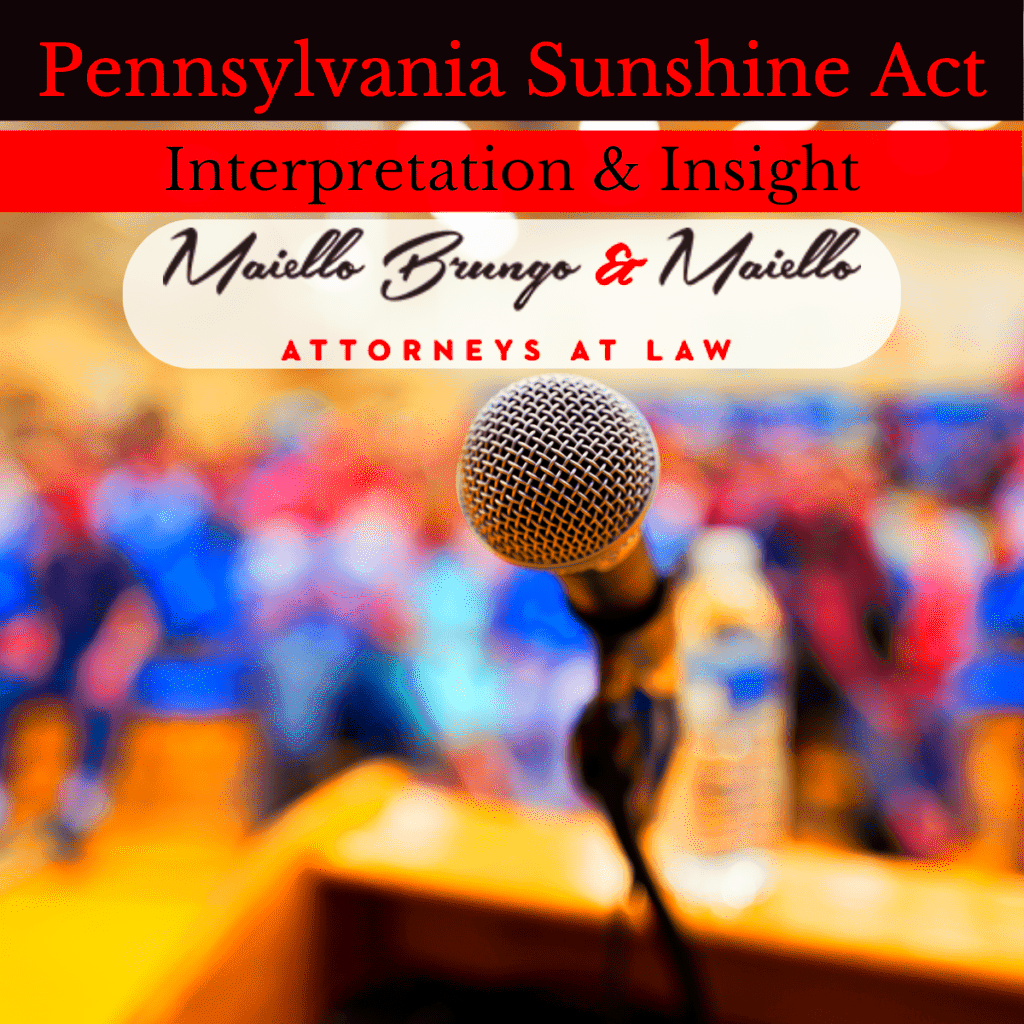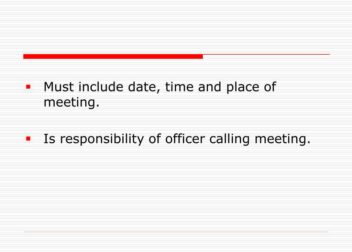Understanding Pennsylvania Sunshine Law
The purpose of Pennsylvania’s Sunshine Law is to promote transparency and accountability in government agencies. This law provides for public access to all government meetings, records and documents pertaining to that agency. By understanding this law, citizens are enabled to better engage in democratic processes while holding officials responsible for their actions.
Key Principles of the Sunshine Law

The Sunshine Law is based on several important ideas that promote honesty and accessibility in government operations. They include the following:
- Public Access: All meetings of governmental bodies must be open to the public, allowing citizens to observe discussions and decisions.
- Notice Requirements: Agencies must provide adequate notice of meetings, including time, location, and agenda, ensuring that citizens can plan to attend.
- Meeting Minutes: Minutes of meetings must be recorded and made available to the public. This ensures there is a written record of what occurred.
- Record Accessibility: Citizens have the right to access various public records, enabling them to obtain information about government operations and decisions.
In this way, Sunshine Law seeks to promote a climate of openness and citizen participation in governance.
Importance of Transparency in Government

There are various reasons why government transparency is important.
- Building Trust: When government actions are open to scrutiny, it builds trust between officials and citizens.
- Encouraging Participation: Transparency encourages more individuals to engage in civic activities, knowing that their voices can influence decision-making.
- Preventing Corruption: Open access to meetings and records can deter corrupt practices by ensuring that actions are visible to the public.
- Enhancing Accountability: With transparency, officials are more accountable for their decisions, leading to more responsible governance.
To summarise, the Sunshine Law is a key instrument for ensuring openness, building confidence and motivating public involvement in democracy.
Who is Affected by the Sunshine Law

The Pennsylvania Sunshine Law has an extensive effect on various entities and individuals engaged in government operations. This section outlines the scope of persons affected:
- Government Agencies: All state and local agencies, including municipalities, school districts, and authorities, must comply with the Sunshine Law. This means they must hold public meetings and maintain accessible records.
- Public Officials: Elected officials, including mayors, school board members, and council members, are required to operate transparently, allowing public scrutiny of their decisions and actions.
- Citizens: Everyday citizens are the primary beneficiaries of the Sunshine Law. It empowers them to attend meetings, ask questions, and request information about government operations.
- Media Outlets: Journalists and media organizations play a vital role in disseminating information gathered under the Sunshine Law, keeping the public informed about government activities.
A healthier democracy is promoted through Pennsylvania by making sure that these groups follow the law which leads to a more knowledgeable and participatory citizenship.
How to Access Public Meetings and Records
In Pennsylvania, public meetings and records can be accessed quite easily. You can follow these steps on how to do it:
- Finding Meeting Notices: Government agencies must post notices of public meetings on their websites and at their offices. Look for these postings, typically a week in advance.
- Attending Meetings: Most meetings are open to the public. You can simply attend the meeting in person. Make sure to check the agenda beforehand if you have specific topics of interest.
- Requesting Records: If you want to access public records, submit a formal request. Here’s a simple guide:
- Identify the records you want.
- Contact the agency’s Open Records Officer.
- Fill out a Right-to-Know request form.
- Submit the form via mail, email, or fax.
- Using Online Resources: Many agencies have online portals where you can access meeting minutes, agendas, and other documents.
Keep in mind that you can contest the decision if an entry is not granted so as to comply with openness.
Common Exemptions Under the Sunshine Law
Though the Sunshine Law seeks transparency some exemptions are available to shield private information. Below are some of those exceptions:
- Personnel Matters: Discussions related to employee performance or discipline are typically exempt from public meetings to protect individuals’ privacy.
- Legal Matters: Issues related to ongoing litigation or legal advice may be kept confidential to safeguard the agency’s interests.
- Security Matters: Information that could compromise public safety or security, such as emergency plans, is often exempt from disclosure.
- Confidential Records: Certain records, such as those protected by federal or state laws, may not be accessible under the Sunshine Law.
The essence of comprehension about these exemptions is for citizens to understand what information could be limited and its reasons. But the objective of the law is broadly understood: to increase public involvement in government actions amidst privacy and protection requirements.
Enforcement and Compliance Measures
For making sure that government factions are living up to the demands placed on them by transparency, it is essential that they enforce Pennsylvania Sunshine Rule. Below are some ways in which compliance is watched and made to happen:
- Public Awareness: Educating citizens about their rights under the Sunshine Law is the first step toward ensuring compliance. The more informed people are, the more likely they are to attend meetings and request records.
- Open Records Officers: Each government agency must appoint an Open Records Officer responsible for handling requests and ensuring compliance with the law. This person acts as a liaison between the public and the agency.
- Complaints and Appeals: If citizens believe their rights under the Sunshine Law have been violated, they can file a complaint. The Office of Open Records is responsible for handling these complaints and can issue binding decisions.
- Training Programs: The state offers training for public officials on their responsibilities under the Sunshine Law, helping them understand how to conduct meetings and manage records appropriately.
Thus, Pennsylvania aims to make certain that its public officials are accountable for their behavior and also encourage compliance.
Frequently Asked Questions about Pennsylvania Sunshine Law
Below are frequently asked questions regarding Pennsylvania’s Sunshine Law:
- What is considered a public meeting? A public meeting is any meeting of a quorum of a government body where public business is discussed.
- How can I file a complaint? You can file a complaint with the Office of Open Records if you believe an agency has not complied with the Sunshine Law. They will investigate your claim.
- What happens if an agency violates the law? If an agency is found to have violated the Sunshine Law, they may face penalties, and decisions made in secret meetings may be rendered invalid.
- Are all records available to the public? No, some records may be exempt for reasons such as privacy, security, or legal matters. Always check with the agency for specific exemptions.
The purpose of these FAQs is to provide clarity on frequently asked questions and motivate individuals to practice their legal rights.
Conclusion on the Importance of Understanding the Sunshine Law
Grasping knowledge of Pennsylvania Sunshine Law is vital in order to enhance people’s awareness and engagement. The law promotes openness in governmental processes and enables individuals to pursue officials’ responsibility for their conducts in addition.
People who know their rights can engage themselves in democratic activities, making sure that their opinions are heard. This is what the Sunshine Law in intended to mean, government ought to be transparent and approachable by all individuals. In this regard, it does not act as a legal arrangement but instead as an avenue for establishing democracy which is accountable and participatory.
Finally, by standing up for transparency and being part of public processes, citizens shape community life and make sure that government acts in accordance with what people want and how they think.


